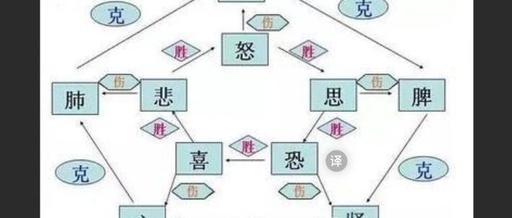Traditional Chinese Medicine (TCM) believes that humans experience seven emotional changes, namely joy, anger, worry, contemplation, sadness, fear, and surprise.The seven emotions are the body’s different emotional responses to external objective phenomena.Under normal circumstances, these emotions do not cause illness, but if emotions become extreme and exceed normal limits, they can lead to dysfunction of the organs and the flow of qi and blood, resulting in the onset of disease.Emotional care refers to the clinical nursing practice that is guided by TCM theory, using a good nurse-patient relationship as a bridge, applying scientific nursing methods to improve and eliminate patients’ negative emotional states, achieving the goal of preventing and treating diseases.Factors influencing emotional changes are numerous, which can be summarized into the following aspects:1. Social factors Social factors can influence a person’s psychology, and psychological changes can affect health.Social factors are very complex, and their impact on mental health is also intricate.For example, changes in living environment, fluctuations in social status, work difficulties, emotional entanglements, family disharmony, separation from loved ones, social unrest, and sudden public health events can all lead to abnormal emotional changes.2. Environmental factors In the natural environment, certain non-specific stimuli can affect the human body, leading to corresponding emotional changes.For example, seasonal changes, lunar phases, sounds, smells, colors, and food can all influence emotional changes.Extreme changes in abnormal weather are more likely to have a significant impact on emotions.A quiet, elegant, and harmonious living environment can make people feel relaxed, and invigorated.Conversely, a noisy, chaotic, and disordered living environment often leads to feelings of depression, gloom, and even boredom, irritability.3 . Pathological factors Abnormal emotions can lead to dysfunction of the organs, and pathological changes in the organs can also cause emotional abnormalities.The Su Wen: On Regulating the Menstrual Cycle states: “Excess blood leads to anger, while deficiency leads to fear”; The Ling Shu: On the Spirit says: “Liver qi deficiency leads to fear, while excess leads to anger… Heart qi deficiency leads to sadness, while excess leads to excessive laughter”.All these indicate that internal organ diseases can lead to emotional changes, and different conditions of the five organs can cause different emotional responses.4. Individual factors Individuals have varying physical constitutions, personalities differ in strength and softness, ages vary, and genders differ.Therefore, the same emotional stimuli can lead to different emotional responses.In terms of physical constitution, those with a stronger constitution are more resilient to emotional stimuli, and generally are not easily harmed by emotions; while those with a weaker constitution may experience exacerbation of diseases from minor emotional changes.Regarding personality, optimistic individuals tend to be broad-minded, calm in the face of challenges, and are therefore less prone to illness; while those with a depressed personality tend to be narrow-minded, and may react emotionally in intense situations, making them more susceptible to illness.In terms of age, children have delicate organs, insufficient qi and blood, and their central nervous systems are not fully developed, making them prone to fear and anxiety-related illnesses; adults have robust qi and blood, but are often in complex environments, making them susceptible to anger and worry; elderly individuals have rich life experiences, and may feel a sense of loss after retirement, often leading to feelings of loneliness, depression, and illness caused by excessive worry.In terms of gender, men are generally more yang, focusing on qi, and tend to be more resilient to emotional influences; while women are generally more yin, focusing on blood, and tend to be more susceptible to emotional influences, often experiencing illness due to sadness and worry.

